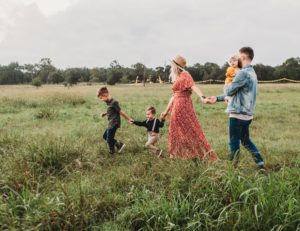If you would like to earn continuing education credits (CLE/CJE) or receive a certificate of completion for watching these recordings, you MUST fill out this survey. You will not receive an immediate response, but we will periodically be sending out certificates and CE information.
Welcome and Introductions
8:30-9:30 am
Meeting Welcome and Land Acknowledgement by Dawn Marie Rubio
Checking in and getting started
FTC Graduate Molly W., Pierce County FRC
FTC Grant Introduction and Updates by Kelly Warner King
Handouts and Resources: FTC Contact List | Assessment Poll (Graduate Involvement) | Slides PDF | Slides PPT | Online Modules | Creating a Land Acknowledgement Guide
Introductions Video:
Speaker Biographies

I
Best Practice Standards for Washington FTCs
9:40-9:55 am: Best Practice Introduction – Meghan R. Fitzgerald
Handouts and Resources: Slides PDF | Slides PPT | Best Practice Introduction Video and Online Modules
This brief introduction to the 2019 Family Treatment Court Best Practice Standard will give participants an overview of how and why the best practice standards were developed. We will discuss background evidence for their use, and how to find more information on each section. Participants will also be introduced to materials online that will help them to set goals for their team and onboard new professionals.
9:55 – 10am: Graduate Jammie H., Island County FRC
10:00-11:00 am: Court Presentations – Facilitated by Julie Lowery
Handouts and Resources: Slides PDF | Slides PPT | Best Practice Cheat Sheet | Online Modules| Discussion Prompts
Eight Courts in Washington have volunteered to present a way that they have applied one of the best practice standards in their court. These brief presentations will provide insight on how to begin new practices in your court, makes changes to existing procedures, as well as to develop relationships with family treatment courts that have similar needs. Best Practice 3 and 7 will have opportunities for discussion with your local operational team. Here are the prompts for those scenarios in microsoft word and pdf file formats. They are also available on this website (no download)
Break
11:10 – 11:15 Graduate Gabrielle C., Mason County FRC Caseworker
11:15 am-12:15 pm: Break Out Discussions
Our first All Sites Meeting is focused on understanding the Best Practice Standards as a whole, then spending time focusing on Standard One and Two: (1) Organization and Structure and (2) the Role of the Judge. Both of these Best practice Standards have a video available on our Online Best Practice Modules page that goes through the standards in detail, as well as slides and a transcript from those videos. We choose to make time available in this meeting to talk with peers and your local operating team about these materials rather than having long presentations, while also offering video content in a more tradition presentation format. Experiencing both will bring you the most actionable information.
Our Break Out Sessions and Materials:
A list of prompts is available here as a microsoft doc file, pdf, or website (no download)
(A) Break outs by FTC Role (11:15-11:45) – Best Practice Standard 1 discusses the organization and structure that supports a collaborative, multidisciplinary, and multisystemic approach. Pieces of this structure and organization are supported by each role on the FTC team. In this portion of our meeting, groups will meeting by role on the FTC team and will be given a series of prompts to discuss focused on best practice one. For each group, these prompts may be different but all will allow Team Members to grow and bring back new ideas to their local FTC Team.
Handouts and Resources: WA FTC Contact Page
We will have you broken up into break out rooms based on the role you listed at registration. If you have not been assigned, we will place you in a room at your request, or you can join a general discussion group.
- Judicial Officers
- Parent Attorneys
- Youth Attorneys
- Assistant Attorney General
- Coordinator
- Case Manager
- DCYF Social Worker
- OPD Social Workers, Parent Advocates, and Peer Allies
- SUD Treatment Providers and Liaisons
- Mental Health Providers
- CASA/GALs
Handouts and Resources: Best Practice Two Video and Online Module
(B) Break outs by FTC Team (11:45-12:15) – Best Practice Standard 2 discussed the role of the Judicial Officer on the FTC team. This role is complex. Many of the structural and organizational policies developed in Best Practice standard 1 are built to support the Judicial Officer in gaining the community and team perspective in order to do what is best for FTC families. In this part of the meeting each team member will be asked to reflect on their discussion in your first break out and how their role supports the Judicial Officer in leading the court.
The list of prompts is available here (lower half of list for prompt 2) as a microsoft word or pdf file, or on a webpage (no download).
Closing of Morning Session
Graduate Speakers
12:15-12:20 Graduate Jessica P., Clark County FRC
Amanda B. and Max K., Pierce County FRC
Lunch Break
Afternoon Sessions
1:30 pm Justice, Diversity, Equity & Inclusion training – Dr. Karen A. Johnson | Slides PDF
3:00 pm Teaching the Hulk Tetris – Adult Trauma and Self Care in Dependency Court – Laura Vogel and Katiebelle | Slides PDF
“Teaching the Hulk Tetris” is based on the foundational idea that people experiencing high stress have limited access to their high-level thinking. When we “hulk out” we tend to respond out of instinct or emotion, rather than rational thinking. This can have significant impacts on relationships, health, and overall ability to successfully navigate our world. This presentation will explore the connection between trauma and negative life outcomes though a foundational understanding of the neurophysiology of the human stress response and how trauma is “stored” in the body. We will take a deep dive into the role of the central nervous system in an individual’s ability to cope with stress and the numerous implications this has for their short-term and long-term wellness. Attendees will hear from a parent with lived experience and will leave with some practical tools for helping clients (and themselves) avoid “hulking out” while navigating the child welfare court system.
FOR CONTINUING EDUCATION CREDITS, PLEASE FILL OUT THE SURVEY LINKED HERE
Contact meghan . fitzgerald @ courts. wa. gov (remove spaces) if you have questions.














